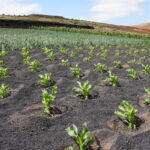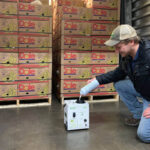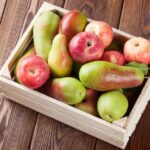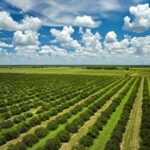Ecuadorian banana exporters are betting on a big comeback for 2023

After a rather catastrophic 2022 for the banana industry, caused mainly by the war in Ukraine, Ecuadorian exporters appeal to unity, fair competition, and shared responsibility of all parties in the sector to reverse the situation.
A challenging 2022
Between January and November 2022, banana export volumes fell by nearly 7% to 323 million boxes. Russia is the second largest importer of Ecuadorian bananas in the world, accounting for over 23% of the fruit exported. The country's conflict with Ukraine was the leading cause of the industry's challenging year.
In addition, supply chain issues during 2021 caused raw materials to increase in price.
In an interview with FreshFruitPortal, Jose Antonio Hidalgo, Executive Director of the Ecuadorian Association of Banana Exporters (AEBE), said: “During the peak weeks of the banana season, the war had already begun. Nearly half a million banana boxes were being lost every week because transportation companies cut their services.”
“We are composed of small, medium, and large exporters. Some of them are concentrated only in this market, they don't have market diversification. The impact was huge on these producers, most did not have the economic capacity to cover the costs of their plantations, and they were losing huge volumes of bananas.”
Even worse, during the last quarter of 2022, climate conditions were colder than usual, adding another strain on production levels.
Looking ahead
“We are starting 2023 with the projections to work together as a country so that we can become competitive within the industry again and recover our production step by step,” said Hidalgo.
AEBE, along with other banana-producing countries, has been very emphatic in confronting some of the challenges and limitations posed by the European Union. Many exporting countries do not comply with the minimum living wages imposed by importers.
“For us, it is a serious competitive disadvantage if importers buy bananas from producers that do not meet this wage standard because we are not playing under the same conditions in terms of costs,” explained Hidalgo.
The expectation is that all European supermarkets have a compromise to fair trade and a long-term policy of buying bananas produced only with decent salaries so that the competitive environment can be transversal for all producers.
Hidalgo explained that there must be an effort placed on allowing the consumer to know where they are buying from. This can be done through the label placed on the fruit which shows the origin of the fruit, allowing the consumer to make a conscious decision about what they are buying.
Exporters ask for less bureaucracy and more agility in exports. They also need less charging costs and more compromise from the certifiers to provide these facilities in a sustainable and competitive way for everyone.
Effect on the consumer
Within the banana industry, these specific issues, and increases in costs to producers have not yet transferred to consumers.
“There is a strategy of offering bananas at a cheaper price, to promote the consumption of other products. This has repercussions on this side of the market because our production prices increase while we get paid less for our products,” said Hidalgo.
Looking east for new consumers
Without looking away from the main import regions like the EU and Russia, producers are starting to look at other markets to increase sales due to competitive disadvantages and harsh regulations in the main import regions.
“New consumers from countries like China, Japan, and Korea are very fond of products, especially fruits, that are imported from places like Ecuador, “ stated Hidalgo.
Even though there is still a lot of work to increase exports to those consumers, Ecuadorian banana producers believe that the present and future growth of agricultural products, particularly for fruits, is in that region.
Local measures to address issues
Several measures are being taken to reduce the impact of these issues on the industry.
On one hand, producers must work with the government to cut pressure on certain regulations to reduce costs.
Several Ecuadorian export companies will be attending Fruit Logistica in Berlin in February to voice their concerns to European customers.
"We take a message to the World Banana Forum and to the participants that all supermarkets have to be committed to the management of shared responsibility. They should take the fair trade methodology as a reference, as the Aldi supermarket is doing,” concluded Hidalgo.
"We want importers to value the effort being made by our producers and exporters so that we can consolidate our brands in the European market," the executive concluded.














































